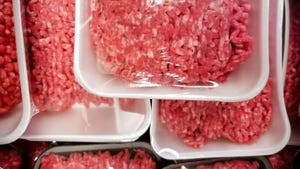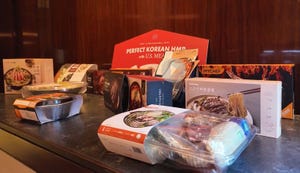Checkoff Power Squabble Continues
Citing the efficiency of resources and nimbleness that allowed the industry to effectively manage the public fallout from the BSE outbreak in 2003, the Federation of State Beef Councils (FSB) passed a resolution on July 31 to continue its current operating structure with the National Cattlemen’s Beef Association (NCBA). However, Federation Division Chair Scott George said in a release that while greater independence is needed, separation is not.
August 6, 2010

Citing the efficiency of resources and nimbleness that allowed the industry to effectively manage the public fallout from the BSE outbreak in 2003, the Federation of State Beef Councils (FSB) passed a resolution on July 31 to continue its current operating structure with the National Cattlemen’s Beef Association (NCBA). However, Federation Division Chair Scott George said in a release that while greater independence is needed, separation is not. FSB is comprised of reps from the 45 state beef councils that collect the $1 beef checkoff.
“As we move forward, we will be working to develop a structure that ensures greater independence, while still maintaining our 14-year successful working relationship with NCBA,” said George, a Wyoming dairy and beef producer.
FSB was at the center of a controversy that erupted publicly a few weeks ago when the executive committee of the Cattlemen’s Beef Board (CBB) voted unanimously in favor of a non-binding recommendation to separate FSB from NCBA. NCBA was in the process of rewriting its governance structure at the time, a project it sidelined following the CBB executive committee announcement.
Editor’s note: CBB voted to reverse that executive committee recommendation last week, with the board subsequently passing a motion to support FSB efforts to achieve a more independent, self-governed structure while retaining its affiliation with NCBA.
CBB's executive committee again roiled the waters early last week by making public for the first time the results of a routine audit of checkoff expenditures that found violations of the firewall that exists to prevent checkoff funds being used for policy purposes (see “Industry Politics Boil Over In Denver” at beefmagazine.com/ccw/0730-industry-politics/).
At issue was $25,000 credited to the checkoff side that should have been credited to the policy side. But, as NCBA President Steve Foglesong pointed out in a Denver press conference last week, last year’s audit identified around $360,000 in misappropriated expenditures – except these were expenditures coded to the policy side that should have been credited to the checkoff. He says the discrepancies were found and quietly corrected, as was the custom.
Until this year, never before had the audit results been made public in such a manner, he says. Results of the previous 13 audits were simply identified, discussed, fixed and procedures modified to make sure they didn’t happen again.
The latest salvo came this week when the CBB released the results of its latest producer attitude survey on the checkoff (see “Approval Of Beef Checkoff Remains High”). Also part of the survey was polling of respondents on six potential changes to checkoff policies. These included:
Increasing the assessment by $1.
Exempting the checkoff on any animal sold for $50 or less.
Holding a referendum on the checkoff every seven years.
Allowing CBB to directly manage checkoff programs.
Allowing qualified beef councils to be organized on a regional basis.
Revising the criteria for determining which organizations are eligible to nominate producers to serve on the CBB.
Producers supported all these changes except for a checkoff assessment increase, where 49% opposed an increase and 40% favored an increase. Among those likely to vote in a referendum, varying percentages from 59% to 78% said they would probably or would definitely vote in favor of the other five issues.
Stay tuned.
-- Joe Roybal
About the Author(s)
You May Also Like



